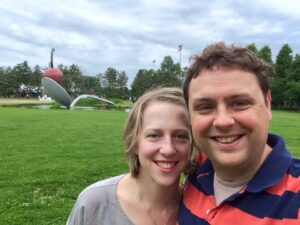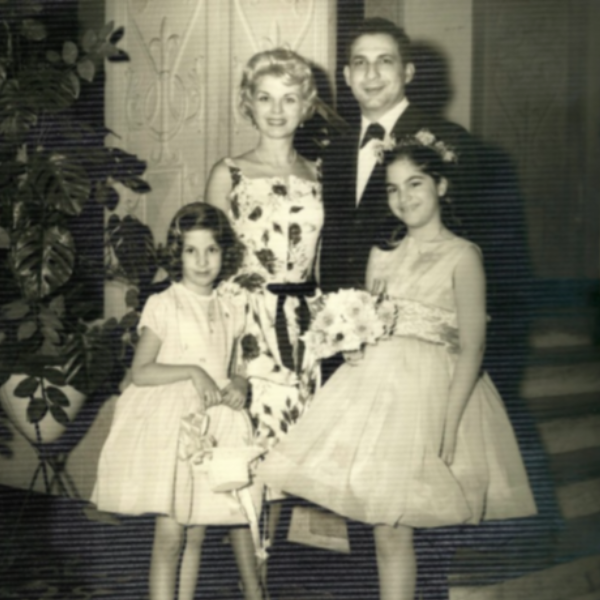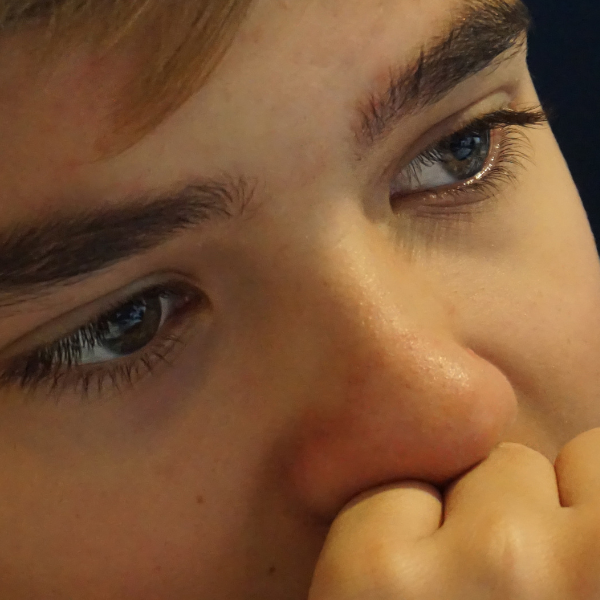 A couple of years ago I was waiting in a clinic to see my physician for a normal well check. When a nurse I had never met came in to check my vitals, she started with small talk. “How are you doing today?” she asked. Instead of mentioning the weather or the big game by the local pro sports team, I decided I wanted to be cute, so I started a conversation about HPV vaccination. “I have been reading about the HPV vaccine and I am pretty excited that my son and daughter might grow up in a world with less cancer”. Her response? “Why? Do you think your daughter is going to be one of THOSE?”
A couple of years ago I was waiting in a clinic to see my physician for a normal well check. When a nurse I had never met came in to check my vitals, she started with small talk. “How are you doing today?” she asked. Instead of mentioning the weather or the big game by the local pro sports team, I decided I wanted to be cute, so I started a conversation about HPV vaccination. “I have been reading about the HPV vaccine and I am pretty excited that my son and daughter might grow up in a world with less cancer”. Her response? “Why? Do you think your daughter is going to be one of THOSE?”
It took the wind right out of me. I didn’t ask her if my daughter, a kindergartener at the time, deserved more respect, or why she hadn’t asked about my son. I didn’t say anything to the doctor I saw later. I didn’t even pause to wonder if she had meant it as a joke to diffuse an uncomfortable or potentially awkward topic. But I did wonder later what the leadership of this particular health system would think if I told them that a father who had initiated a conversation about preventing cancer in his children had been deflated by a question about whether his daughter was going to grow up to be promiscuous.
Most HPV cancers can be prevented if boys and girls complete their shots before age thirteen. On-time vaccination is about immune response, which means a delay complicates things. Two shots before age fifteen becomes a series of three after that. Later vaccination offers some protection, but not as much as vaccination between ages nine through twelve, when adolescents are more likely to be seeing a doctor for well checks. We want to protect everyone. Not just the “good” boys and girls or the “bad” boys and girls, the kids at low risk or the kids at high risk. All boys and girls should get these vaccinations. They save lives.
HPV is common. 8 in 10 men and women will get it at some point in their lives. Many people don’t know they have it and can pass it on unknowingly. While most infections go away on their own without lasting health problems, some will turn into cancer. And if we can prevent a cancer, why wouldn’t we do everything we can to do that?
We know that radon exposure causes lung cancer over decades. When I discovered that my house had unsafe levels I didn’t take my time addressing the problem. I wanted to provide my family with as much protection as possible. We called a contractor and mitigated the risk. That is how I feel about the HPV vaccine. The sooner my kids can get the vaccine, the more protection they will have. This decision is made even easier because I know the vaccine is safe, effective, and long-lasting. Studies have shown that the vaccine provides close to 100% protection against infections and pre-cancers caused by certain types of HPV. That is remarkable.
Since coming onto the market, more than 270 million doses of the HPV vaccine have been given worldwide, including 120 million doses in the U.S.. Before becoming available in 2006 the HPV vaccine went through extensive safety testing, like all vaccines, and scientists and health organizations around the world continue closely monitoring its safety.
Like any vaccination, there may be common mild side effects from the HPV vaccine, like headache or fever. There may be pain, redness, and/or swelling where the shot was given. A small number of people may experience a more serious side effect, such as an allergic reaction or fainting when the vaccine is given. Anyone who has a severe allergy to yeast or any other ingredient in the vaccine, for example, should not receive the HPV vaccine. But it is reassuring that more than 100 studies have shown that the HPV vaccine is safe. In fact, the HPV vaccine can help protect women from future fertility problems linked to cervical cancer and pre-cancer, making it a safe and effective way to help protect health and the ability to have healthy babies.
Matt Flory has worked at the American Cancer Society for nearly two decades. He lives with his family in Minneapolis, Minnesota.
If you are interested in learning more about HPV, HPV cancers, and the vaccine that can prevent them, visit www.cancer.org/hpv or call the American Cancer Society at 1-800-227-2345.



